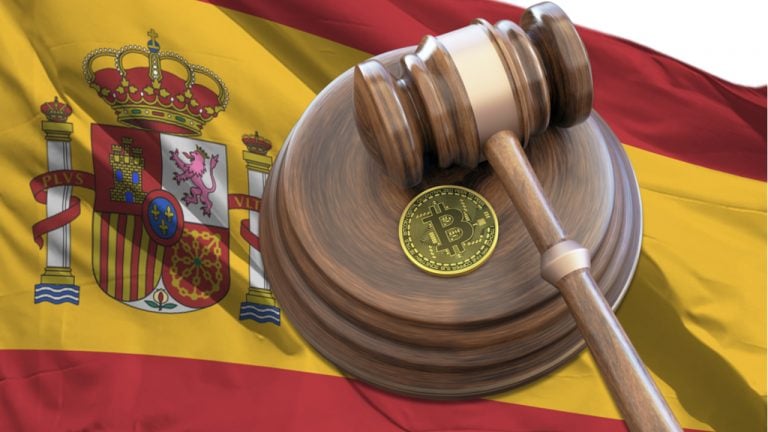Investors File Class Action Lawsuit Before the National Court of Spain Over an Alleged $298M Crypto Scam

A group of Spaniards filed the first crypto-related class-action lawsuit before the National Court of Spain on an alleged million-dollar scam. The lawsuit targets an individual accused of allegedly scammed over 300 small crypto investors across Spain.
Money Stolen Could Amount Up to $3.58 Billion
Per El País, the class-action lawsuit claims that an individual named Javier Biosca Rodríguez allegedly scammed over 250 million euros ($298 million) in cryptocurrencies from the investors.
The profile of the victims is mixed, starting from domestic employees, retirees, unemployed, even notaries, a judge, lawyers, tax inspectors, and owners of small businesses who tried to recover from the coronavirus-driven economic crisis.
Although it’s not the first class-action suit filed before the National Court of Spain, it’s the first-of-its-kind that involves a crypto-related case, said the local media outlet.
The lawyer representing the victims is Emilia Zaballos, who clarified that despite the class-action lawsuit was filed on March 17, 2021, it wasn’t disclosed to the public “until the deadline for submitting contracts and other documents provided by small investors, in general, has ended.”
Moreover, Zaballos – who also is the president of the Association of People Affected by Cryptocurrency Investors (AAIC) – says that the number of victims “keeps rising each day.”
Specifically, the lawsuit states the damages sum up to around 250 million euros ($298 million), but the lawyer is concerned that the amount could cross the 3 billion euros ($3.58 billion) barrier.
Alleged Ponzi Scheme Collapsed in November 2020
According to the court documents, Biosca built a scheme based on offering its clients weekly returns on their crypto investments between 20 and 25%. Mainly, he focused on acquiring bitcoin (BTC), ethereum (ETH), and litecoin (LTC) with the collected money.
Clients indeed initially started to receive the profits from their investments. Due to the trust gained by Biosca, its initial small amount of customer base spread the voice and attracted even more investors onto the scheme.
However, Biosca reduced the returns promised to 10% or even 8% weekly starting January 2020.
He told his customers that he owned a brokerage firm named Algorithms Group, but the company wasn’t in the Spanish National Securities Markets Commission (CNMV). Later in November 2020, Biosca stopped paying his customers.
Zaballos says that lawsuit is extended to Biosca’s wife and his older son, accusing them of scam and other crimes such as “as misappropriation, receipt and money laundering, illicit association, crimes against the public treasury, bribery, corporate crimes, concealment and falsification in a public document.”
What do you think about this alleged millionaire crypto scam case in Spain? Let us know in the comments section below.
Comments
Post a Comment